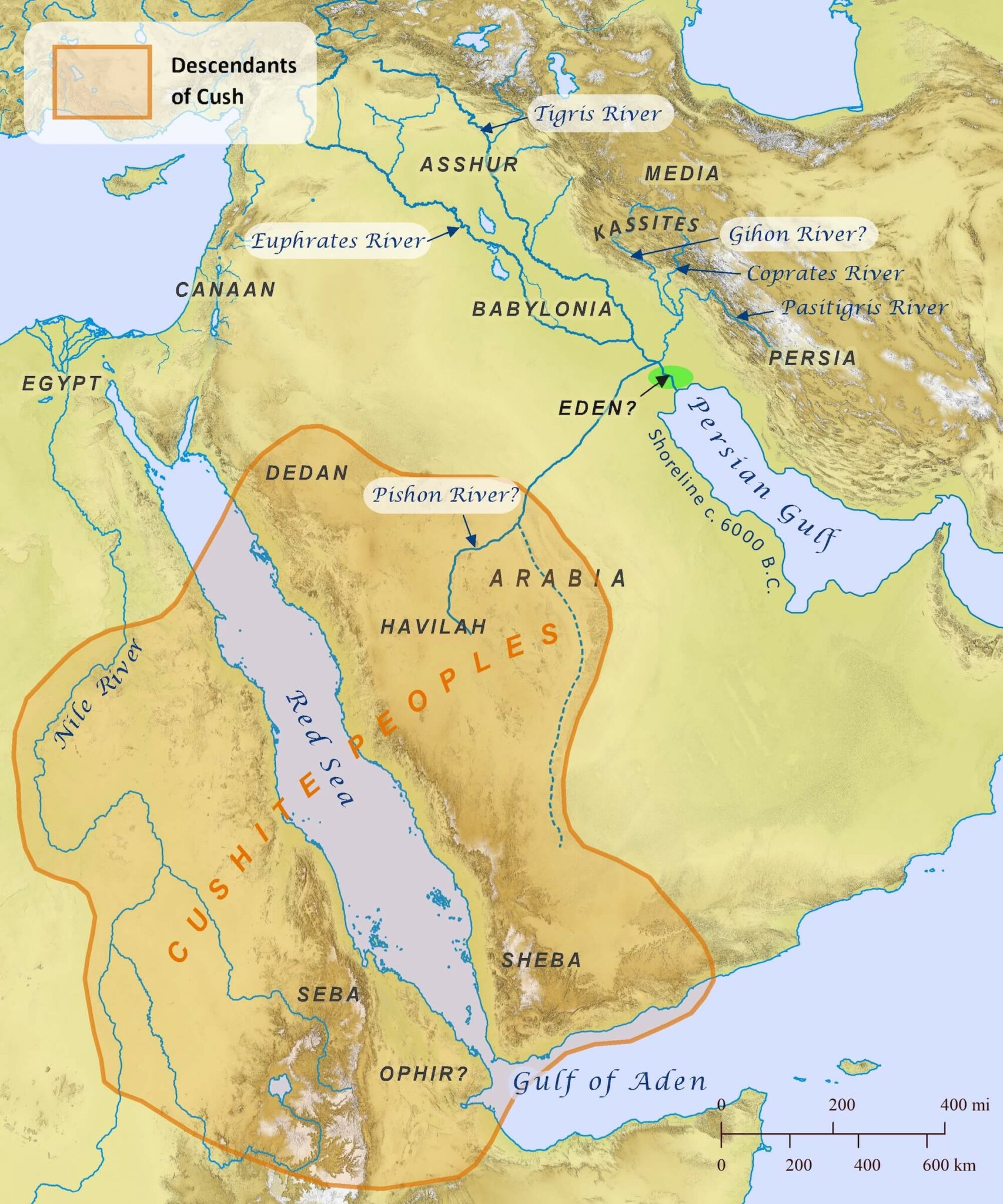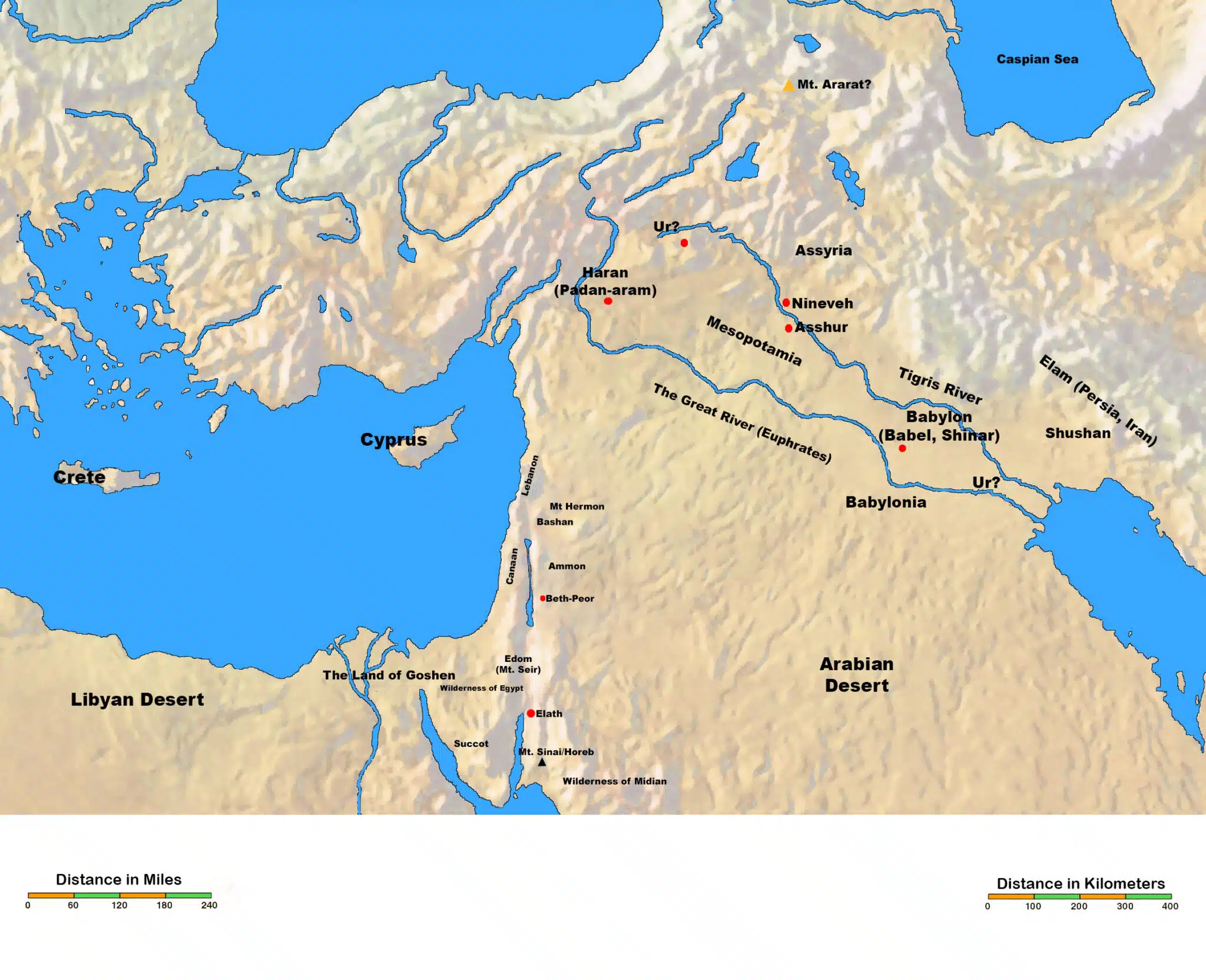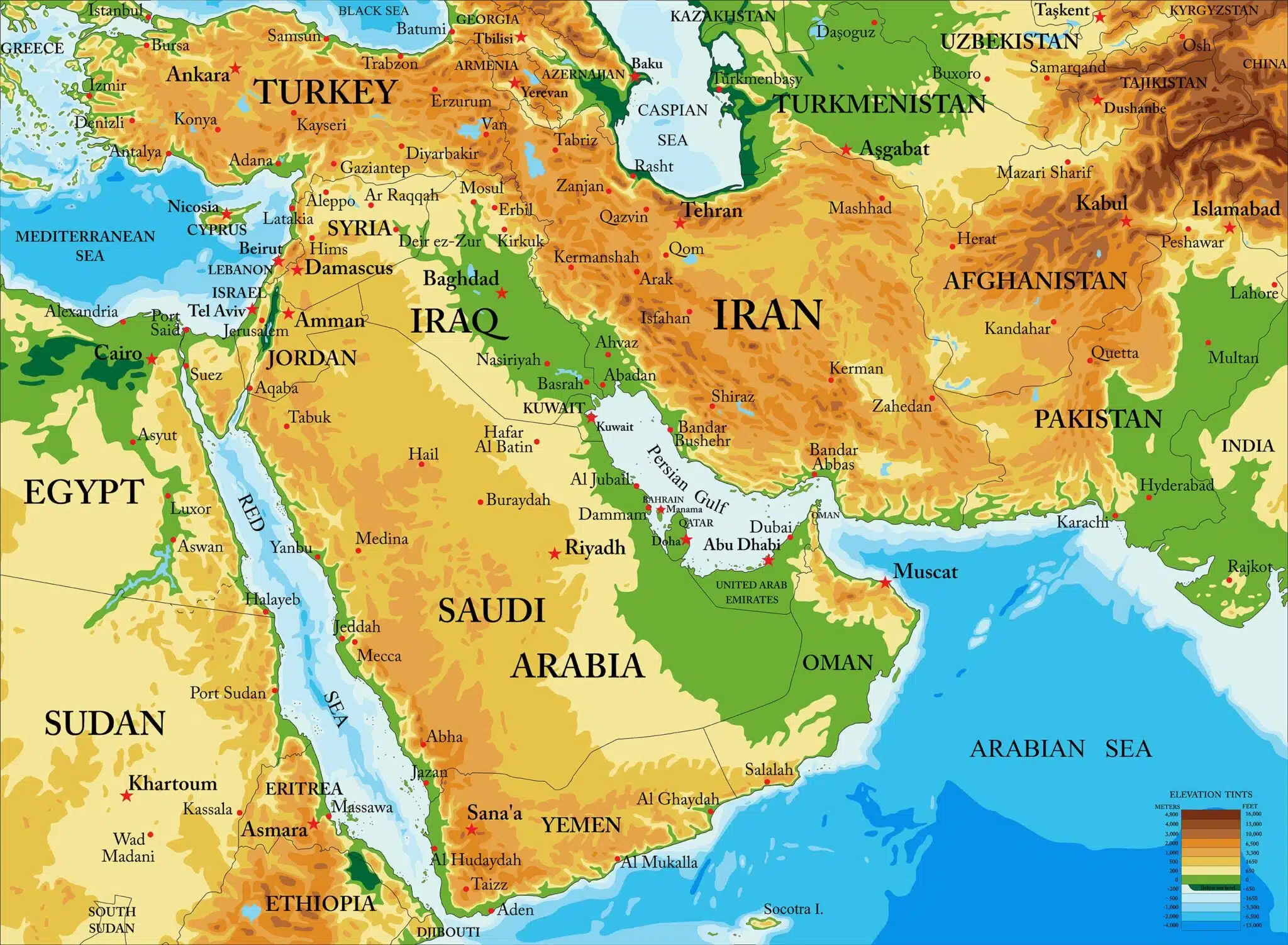A river flowed out of Eden and divided into four other rivers, the Pishon, the Gihon, the Tigris, and the Euphrates.
In verses 10-14, we find more details of the description of Eden. The four rivers do not pinpoint the exact geographical location of Eden, but they do suggest a potential connection with Mesopotamia. The river Pishon’s name is derived from the Hebrew verb push, meaning “to spring up.” The river Gihon’s name is based on a verb meaning “to burst forth.” The location of the land Havilah is unknown, but it is mentioned four more times in Genesis. Havilah had gold and precious stones, but Eden had the tree of life and the presence of God. The land of Cush may refer to a region of East Africa, possibly including Southern Egypt and Northern Sudan. Modern scholars suggest it could be Ethiopia.
The Tigris is one of two great rivers in Mesopotamia. It begins in southeastern Turkey and flows into the Persian Gulf. Many important cities were found along the Tigris, including Nineveh and Asshur. Assyria was a major empire in the region of the upper Tigris. The Euphrates and Tigris rivers outline the land called Mesopotamia. In fact, the name Mesopotamia means “between the rivers.” The ancient city of Babylon was built near the Euphrates. This river divided the Hittite and Egyptian empires.
Assyria is mentioned here probably because Moses (the author of Genesis) was using a marker familiar to the people of his time to describe the location of an area at a time prior to the creation of Adam and Eve. So the east appears to be the land of the Fertile Crescent, where civilization began.
Biblical Text
10 Now a river flowed out of Eden to water the garden; and from there it divided and became four rivers. 11 The name of the first is Pishon; it flows around the whole land of Havilah, where there is gold. 12 The gold of that land is good; the bdellium and the onyx stone are there. 13 The name of the second river is Gihon; it flows around the whole land of Cush. 14 The name of the third river is Tigris; it flows east of Assyria. And the fourth river is the Euphrates.
Check out our other commentaries:
-
Micah 2:6-11 meaning
Micah declared an oracle of judgment against false prophets whose teaching justified the seizing of other people’s land by wealthy land barons....... -
Genesis 1:2-5 meaning
This is the first full day of creation. God creates light and separates it from the darkness. He names the light “day” and the darkness...... -
Exodus 3:1-6 meaning
When Moses was shepherding Jethro’s flock around Mount Horeb, God appears to him in the form of a bush that is burning but is not...... -
Matthew 4:17 meaning
King Jesus begins His earthly ministry by announcing His Kingdom....... -
Ecclesiastes 11:9-10 meaning
Solomon exhorts young men to live joyfully and responsibly while at the height of their energy—investing wisely and making the most of every opportunity, knowing......





